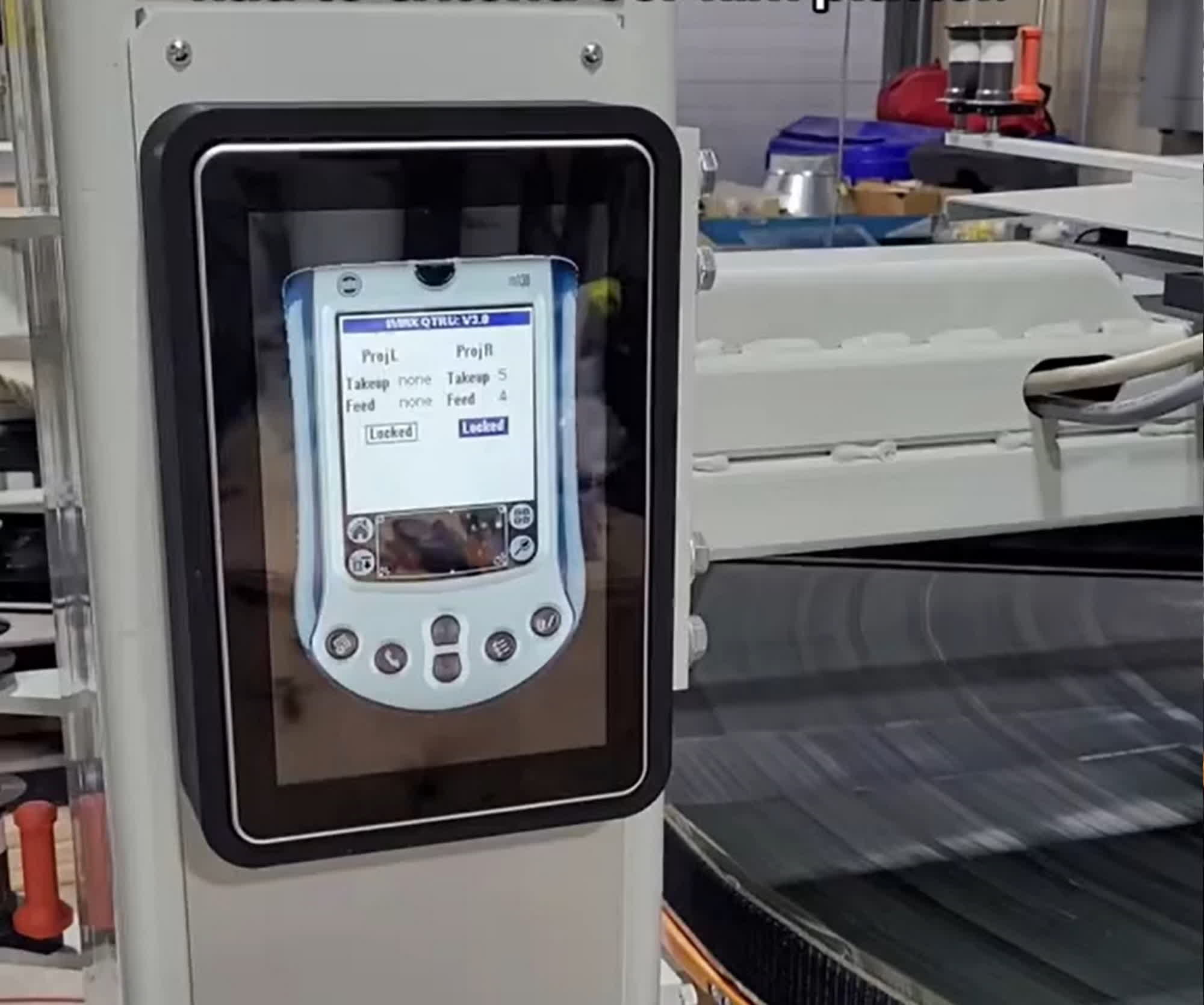In context: Ancient computer technologies are never completely retired, especially when they are required to operate exclusive machinery found in only a few locations worldwide. A case in point is the new 70mm IMAX release of Oppenheimer, written and directed by Hollywood wonder boy Christopher Nolan, and one of the most anticipated films of the year.

Blu-ray disks still provide the best experience for watching films and TV series at home, floppy disks are still needed here and there, and when hardware fails, there's always the emulation route to keep using decades-old equipment like Quick Turn Reel Units for IMAX theaters. These units host the ginormous physical film reels of an IMAX movie, and they are seemingly best controlled with a device that originally shipped to customers in 2002.
Christopher Nolan, a long-time supporter of the IMAX proprietary system for high-resolution films, filmed Oppenheimer in the standard's native 70mm format. The technology offers 10 times the resolution of standard film formats, as explained on the movie's official website, providing IMAX moviegoers with the "most immersive presentation" of the film about the life of theoretical physicist J. Robert Oppenheimer.
According to a brief video recently shared by IMAX Corporation via TikTok, the 70mm film reel of Oppenheimer was so large that it required adjustments to the film platters. The most interesting tidbit shown in the clip, however, is the PalmOS emulator, seemingly necessary to operate the IMAX Quick Turn Reel Units.

IMAX later confirmed that the original Quick Turn Reel Units for 70mm film prints operated on PalmPilots. The Palm m130, a personal digital assistant (PDA) equipped with a 33MHz CPU, a 160x160 pixel LCD screen, and Palm OS 4.1, seems to be the ideal device to keep IMAX reel units running. Prior to the release of Oppenheimer, the company's developers had to create an emulator that mimics the look and feel of a PalmPilot PDA while running on a Windows tablet.
Some IMAX theaters can seemingly use physical Palm PDA devices to control the 70mm reel units. According to IMAX Corporation, their dedicated m130 emulator provides additional controls for the left and right sides of 3D projectors, sets when a platter is ready for film, and more.
The need for a quasi-ancient technology like the Palm m130 seems particularly fitting for Oppenheimer, Nolan's new bombastic thriller about a man instrumental in developing the world's first atomic bombs with the Manhattan Project. The dawn of the Atomic Age provided the Allied forces with the overwhelming force they needed to win the Second World War, and 80 years later, we are still grappling with the potential threat of an all-out nuclear war between the US, Russia, and other countries equipped with nuclear weapons.
https://www.techspot.com/news/99517-oppenheimer-70mm-imax-release-requires-palm-pda-emulator.html